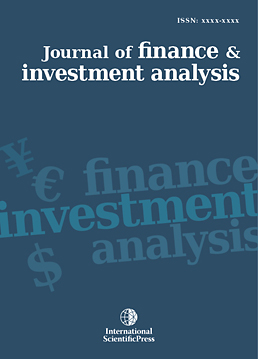Journal of Finance and Investment Analysis
The Determinants of Trade Credit: Evidence from Nigeria
-
 [ Download ]
[ Download ]
- Times downloaded: 11494
-
Abstract
Trade credit is an important component of corporate finance in many countries. This paper empirically investigates the determinants of trade credit in the Nigerian context. The empirical evidence presented suggests that the affect of institutional loans on demand for trade credit is much stronger indicating that firms are credit constrained and hence switch to trade credit financing. The econometric analysis showed that high level of operating income, retained earnings, depreciation provision gives the firms a strong leverage hence would not switch on to trade credit financing.
